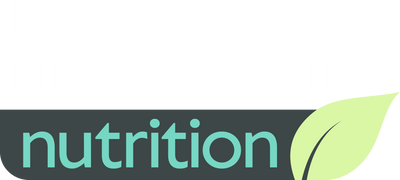Biotin vs. Collagen
March 16, 2022
Each hair follicle consists of keratin protein cells rooted in the skin’s dermis by a hair bulb. Blood vessels deliver hormones and nourish each hair follicle to keep them growing healthy and strong. However, if your hair is falling out at the roots, there may be something wrong with your overall health. It might be worth considering biotin vs. collagen as an additional supplement to your diet.
If you struggle to get the necessary vitamins and minerals, your hair can take a knock. Instead of redirecting nourishment to the hair follicles, your body focuses on keeping your organs functional. The medical term for severe hair loss in men and women is alopecia. Doctors check on alopecia patients by looking at their diet, habits, stress levels, and medication to identify the actual cause of the problem.
If your doctor cannot diagnose a problem or you want to grow your hair thicker, consider taking collagen vs. biotin supplements to treat hair loss and keep your skin healthy. So, biotin vs. collagen - what are the differences?
What is Biotin?
A better understanding of the differences between biotin vs. collagen is important when deciding which supplement is better suited for your needs. Biotin is a B-complex vitamin, also known as vitamin B7 or B8, vitamin H, or coenzyme R. It’s found in many common foods such as eggs, milk, nuts, grains, and fatty fish. As a vitamin, biotin’s role is to help manage metabolic reactions and assist the human body when it processes fats, proteins, and carbohydrates in food into energy by shifting carbon dioxide between molecules.
Biotin also plays a role in blood sugar regulation, cell growth, and metabolizing fatty acids. Women who are undergoing pregnancy or breastfeeding would greatly benefit from biotin as well. If you eat a healthy and balanced diet, you’re probably already getting all the biotin you need. Biotin is water-soluble, which means it dissolves in water so excess biotin is flushed out of your body when you urinate.
Biotin deficiency is fairly uncommon but it does happen for some patients; brittle nails, flaky red rashes, and hair breakage or hair loss are some of the symptoms of biotin deficiency. This is one of the few medical situations a doctor would prescribe a biotin supplement. However, if no deficiencies are present and you continue to take additional biotin, you may experience acne breakouts.
What is Collagen?
Collagen is the most abundant protein in the human body. This fibrous protein serves as the structural building block, found in connective tissues like the skin, ligaments, joints, tendons, and cartilage surrounding organs. Collagen is also present in the muscles, bones, vertebral discs, teeth, corneas, and blood vessels, keeping these parts moist and lubricated.
When there is sufficient collagen in the body, patients will have strong nails, thicker hair, and healthy skin. As soft collagen works throughout the body, it reduces joint pain, builds lean muscle mass, heals wounds, and improves the overall condition of the skin. Since collagen production decreases with age, collagen supplements are often recommended to fight against aging.
Unlike biotin, collagen is insoluble in water and needs to be broken down so your body can absorb it. Processed or ‘hydrolyzed’ collagen is commonly found in capsule, chewable, or powder forms. In cooked foods like bone broth, collagen protein turns into Gelatin. Check out our range of specialised collagen powders here.
Biotin vs. Collagen: Which Supplement Is Better for Hair Growth?
Biotin vs. collagen is often recommended by dermatologists and hair experts because each supplement is believed to promote benefits for the hair, skin, and nails. However, they work differently from each other, and collagen is thought to be better for hair growth.
As a vitamin, biotin primarily supports hair health by breaking down macronutrients in the body for cell renewal and growth. On the other hand, collagen directly promotes hair follicle growth through amino acids and proteins. Collagen also strengthens the scalp’s dermis and helps antioxidants fight free radicals which damage the hair.
Notably, collagen is an anti-aging protein and can even prevent age-related hair loss. Having more collagen in your skin’s tissues replenishes its cells and keeps the skin firm but elastic, which ensures your hair follicles will grow on a healthy scalp.
Another reason why the efficacy of biotin as a hair growth vitamin is because its claims have yet to be proven scientifically. The available preliminary studies suggest that biotin can boost hair growth but lack any conclusive evidence for it. Even though a significant body of data is missing, some patients who take biotin supplements do see improvement in hair health.
Ideally, you should take both collagen and biotin if you really want to support strong hair, skin, and nail growth. Collagen and biotin naturally work together and deliver a combination of nutrients to prevent hair loss and provide multiple health benefits. It isn’t about one product being better than the other but more on how to give the body the right balance of vitamins, proteins, and minerals it needs to look good and stay in peak condition. Contact us via Whatsapp if you want more information on biotin vs. collagen.
Special thanks to: https://facemedstore.com/
Also in Health

Collagen is an effective joint pain supplement
March 28, 2025
Collagen—a protein naturally found in your body—may hold the key to protecting your joints, soothing pain, and promoting better mobility.
Sign up to get the latest on sales, new releases and more…




